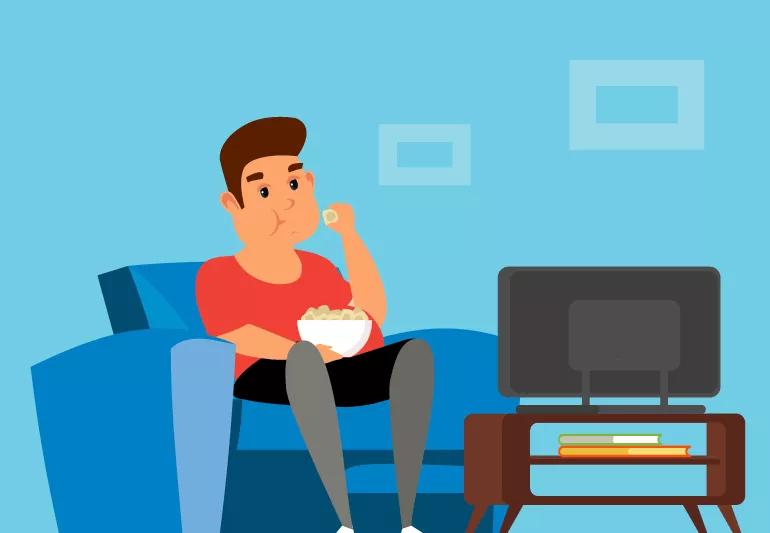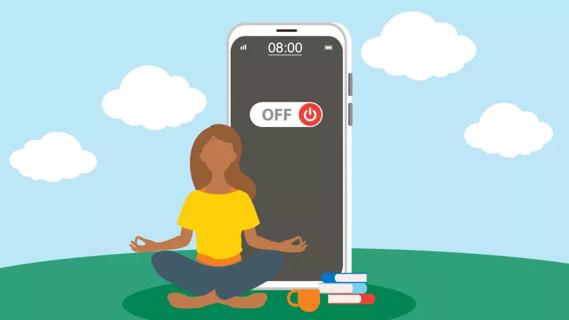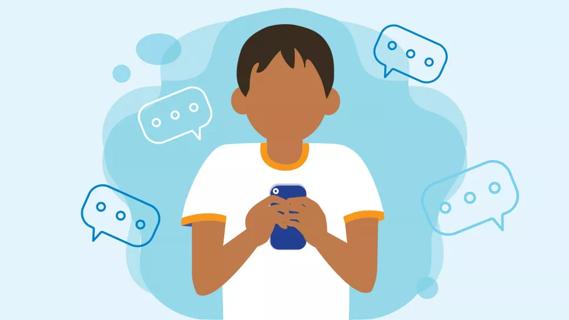Five tips for breaking your distracted eating habit

Do you ever eat dinner with a fork in one hand and the TV remote in the other?
Advertisement
Cleveland Clinic is a non-profit academic medical center. Advertising on our site helps support our mission. We do not endorse non-Cleveland Clinic products or services. Policy
For many people, the preferred way to unwind after a long day is by plopping down on the couch, kicking up their feet and vegging out in front of the TV.
Unfortunately, this habit has the potential to lead to overeating and, eventually, weight gain.
“It’s fine to sometimes have a snack in front of the TV, but when it becomes a repeated pattern, or when eating and watching TV become cognitively linked, then it becomes an unhealthy pattern,” explains psychologist Susan Albers, PsyD.
If you’re eating in front of the TV (or computer, or smartphone, for that matter), chances are you’re paying more attention to what’s happening on the screen than to the spaghetti you’re putting into your mouth.
“We tend to eat more mindlessly in front of the TV,” Dr. Albers explains. “We also don’t taste and experience the food as much because we’re distracted.”
This not only makes food less satisfying, but it makes it easier to miss cues that you’ve eaten enough, like seeing how much is gone from the plate or feeling that your stomach is getting full.
Research backs up this idea, too. Studies show that we tend to eat more when we’re distracted — both in the moment of distraction and later on in the day.
“I think eating while watching TV also prolongs the time period that we’re eating,” Dr. Albers adds. “If your show is an hour long, you might continue to eat throughout that time period.”
Advertisement
If you’re ready to start eating more mindfully, start with these tips from Dr. Albers:
Sleep, stress and a whole variety of emotions can also contribute to overeating, so if you’re having a hard time reigning in your TV-snacking, consider whether there might be other factors at play.
Advertisement

Sign up for our Health Essentials emails for expert guidance on nutrition, fitness, sleep, skin care and more.
Learn more about our editorial process.
Advertisement

It isn’t a recognized mental health disorder, but research shows that problematic social media use can negatively affect your mental health, self-esteem and sleep

Too much blue light, especially from digital sources, may lead to eye strain and computer vision syndrome

When done in excess, watching TV can disrupt your sleep and lead to physical inactivity and social isolation

Imagination, completing tasks and social interactions are all key benefits for your brain

They’re fun to watch, but medical TV shows are often more hype than reality — and you shouldn’t rely on them for factual medical information

Embrace mindfulness and practice checking your phone consciously, not compulsively

Identify your triggers, set ground rules for your break and start practicing mindfulness

Too much screen time and unrealistic expectations and perceptions and can lead to an increased risk of anxiety and depression

Even small moments of time outdoors can help reduce stress, boost mood and restore a sense of calm

A correct prescription helps your eyes see clearly — but as natural changes occur, you may need stronger or different eyeglasses

Both are medical emergencies, but they are very distinct events with different causes